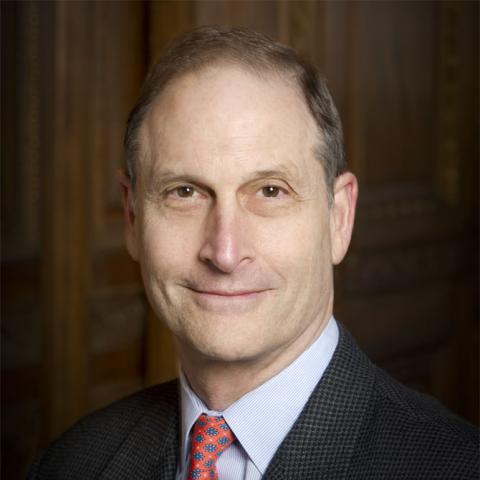This post is based on David Blumenthal’s speech at the 2014 Columbia University College of Physicians and Surgeons graduation ceremony.
Medicine today—despite all the turmoil that surrounds it—remains unsurpassed for the gratification it offers the professionals who pursue it. Some other careers offer greater financial rewards; many offer shorter working hours. But none offer the magic that transpires between patient and physician in those moments when a physician brings to the bedside, the examining table, the operating room—or perhaps the telechat—that unique combination of caring, clinical experience, and scientific knowledge that alters a life for the better.
Yet the rewards of a medical career are earned only through preparation, planning, and effort. And in our current era, with changes taking place at an astonishing and disorienting rate, preparation, planning, and effort are becoming ever more important.
One of the trends every graduating medical school class over the last 50 years has had to contend with is the explosion of scientific knowledge. The rapid improvement in our understanding of health and disease challenges us to stay informed and current. For the most part, new knowledge is empowering, giving us ever more powerful tools with which to ply our trade.
The new pharmacologic treatments for hepatitis C, which affects 2 percent of Americans—more than 6 million individuals—are a dramatic case in point. My clinical experience was filled with cases of men and women dying the terrible death of end-stage liver disease or hepatic carcinoma caused by untreated and untreatable hepatitis C. Today’s patients and their care providers should not have to experience that fate nearly so often, if at all.
There are, however, other developments bearing down upon medicine and the health system. The first of these—well illustrated, ironically, by the hopeful example of hepatitis C—can be summarized as: 20 percent by 2020.
Unless something unexpected happens, we will almost certainly be spending 20 percent of our gross domestic product on health care by the year 2020. A health sector of this size—no matter its benefits—is cause for concern. When health care draws away essential support from other equally vital social purposes—like the effective education of our young people; the quality and safety of our roads, bridges, and telecommunications infrastructure; and our ability to fund the arts and culture that help define civilization—then health care expenditures become deeply problematic. A healthy society requires more than health care.
As currently priced, Sovaldi, the new drug for hepatitis C, illustrates the troubling tradeoffs that physicians face. If we were to treat all affected U.S. residents with hepatitis C at Sovaldi’s current price of $84,000 per course, the total expense would be $500 billion, or almost double our entire annual expenditure of $263 billion on all prescription drugs.
Perhaps that extraordinary expenditure, and others like it for drugs coming down the research pipeline, will prove worth it. But others we make certainly are not. Patients often receive unnecessary, wasteful, and even dangerous health care.
It is the physician’s daily responsibility to husband health care resources—to become a steward of the health care dollar—in ways never before required. New skills and supports will be required to make rational decisions that optimally balance patients’ interests and those of the larger society.
A second trend could help physicians manage this responsibility. We might call it data liberation. Medicine is finally applying digital technology to its daily work. Long streams of data will travel with every patient you see—think of a comet’s tail following its head—and will profoundly challenge physicians’ ability to assimilate those data and process them for patients’ benefit. At the same time, buried in that information, will be powerful new insights into health and disease that can form the basis of predictive algorithms and treatment guidelines that will make physicians better and more efficient, and will elevate the power of the profession to heal and prevent disease.
A third trend, intimately related to data liberation, will be the changing nature of physician–patient relationships as new information and communication technologies explode. Silicon Valley and Silicon Alley are already breeding a host of companies working to take newly available digitized information about patients and transform it into advice about how individuals should manage their health, and which health professionals and hospitals perform the best. At the same time, patients will increasingly communicate with caregivers and each other electronically through email, Skype, social media, remote monitoring, and other means we can only imagine.
It is impossible to predict how the combination of data liberation and electronic communication will affect physicians’ relationships with their patients, but one thing is absolutely essential: physicians cannot and should not resist these trends. Instead, physicians must perceive them as potentially empowering ways for patients to partner with their providers to manage their health and disease.
Still a fourth trend is the changing organization of medicine as a profession. Faced with new challenges to steward resources, master liberated data, and partner with empowered patients, physicians will need more help and support than they can muster in solo practice and small groups. As a result, professionals will increasingly practice in large groups and as parts of health care organizations, enabling them to share resources and advice with colleagues, find protection from the turbulence of the health care system, and enjoy the protected space necessary to have meaningful relationships with individual patients.
Medicine is a robust and enduring profession. It draws its strength, relevance, and gratification from the profound needs of all humans for a caring touch and for hope and relief in the face of illness and suffering. That wellspring of need will persist, and any young physician can be assured that they will have opportunities to lead a rewarding and gratifying professional life. But to enjoy those huge gratifications, physicians will have to embrace the huge changes that will be part of 21st century medicine.




